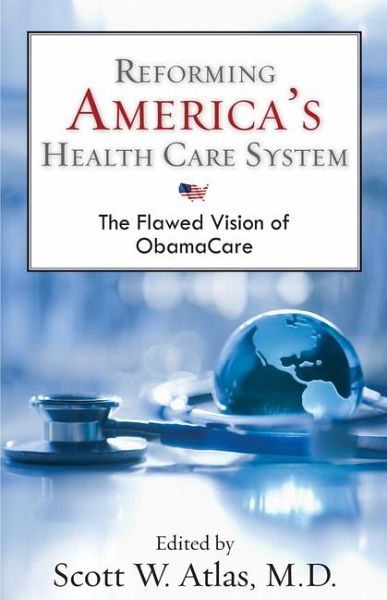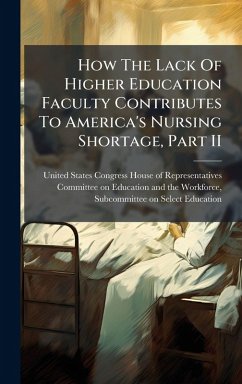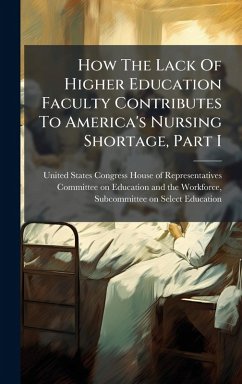
Reforming America's Health Care System
The Flawed Vision of ObamaCare
Herausgeber: Atlas, Scott W
Versandkostenfrei!
Versandfertig in über 4 Wochen
15,99 €
inkl. MwSt.

PAYBACK Punkte
8 °P sammeln!
Medical care in the United States has often been criticized, in highly publicized rankings (most notably the World Health Organization's report on health care in almost two hundred nations), as inferior compared to health care systems in the rest of the developed world. Why, then, has much of the public remained steadfast in its opposition to the reforms imposed by Congress and President Obama? In multiple surveys, more than 80 percent of Americans are satisfied with the quality of their own health care, revealing a fundamental truth: Americans understand, from personal experience, that, despi...
Medical care in the United States has often been criticized, in highly publicized rankings (most notably the World Health Organization's report on health care in almost two hundred nations), as inferior compared to health care systems in the rest of the developed world. Why, then, has much of the public remained steadfast in its opposition to the reforms imposed by Congress and President Obama? In multiple surveys, more than 80 percent of Americans are satisfied with the quality of their own health care, revealing a fundamental truth: Americans understand, from personal experience, that, despite its sometimes prohibitive costs, American medical care is the best in the world. In Reforming America's Health Care System, health policy experts from the United States, Canada, and Western Europe discuss both what to expect from the recent health reform legislation and that alternatives should still be considered. They offer critical appraisals of numerous aspects of the new law, looking at the individual mandate to buy insurance, the threat to medical innovation, the reduction of choice to consumers, and the complexities of medical malpractice reform. In addition they examine lessons learned from state health reforms, the Canadian government's control of access to care, and the Western European government's oversight of comparative effectiveness. The contributors argue that Americans already have a superior health care system and that reformers could have built on this record with important changes, including breaking down anticompetitive barriers, reducing administrative waste, eliminating mandate-created distortions of the health insurance market, instituting creative tax reforms, and forcing doctors and hospitals to post prices, qualifications, and outcomes--information that is essential to value-based purchasing and fundamental for stimulating competition and reasonable reforms to a medico-legal liability system run amok. Were Congress to enact reforms that remove artificial barriers and constructively open markets to competition, private-sector creativity would generate innovative, low-cost insurance products for tens of millions of consumers and facilitate innovations in medical care that have been the linchpin of improved health care during the past several decades. Such genuine reforms would bring down the cost of insurance, reduce the number of uninsured, increase individual choice, and empower Americans to make value-based decisions for their families.












